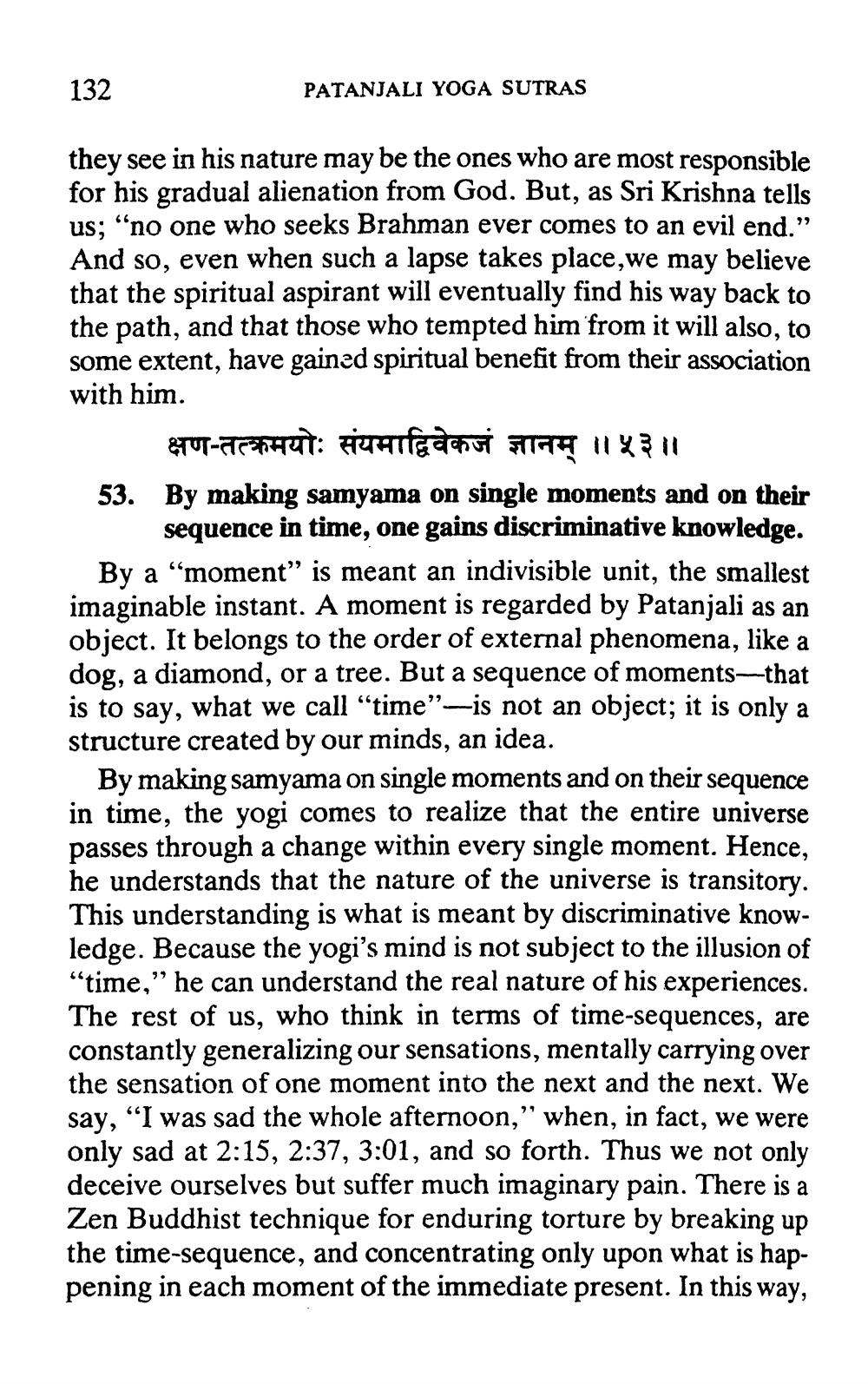________________
132
PATANJALI YOGA SUTRAS
they see in his nature may be the ones who are most responsible for his gradual alienation from God. But, as Sri Krishna tells us; "no one who seeks Brahman ever comes to an evil end." And so, even when such a lapse takes place,we may believe that the spiritual aspirant will eventually find his way back to the path, and that those who tempted him from it will also, to some extent, have gained spiritual benefit from their association with him.
क्षण- तत्क्रमयोः संयमाद्विवेकजं ज्ञानम् ॥ ५३ ॥
53. By making samyama on single moments and on their sequence in time, one gains discriminative knowledge.
By a "moment" is meant an indivisible unit, the smallest imaginable instant. A moment is regarded by Patanjali as an object. It belongs to the order of external phenomena, like a dog, a diamond, or a tree. But a sequence of moments-that is to say, what we call "time"-is not an object; it is only a structure created by our minds, an idea.
By making samyama on single moments and on their sequence in time, the yogi comes to realize that the entire universe passes through a change within every single moment. Hence, he understands that the nature of the universe is transitory. This understanding is what is meant by discriminative knowledge. Because the yogi's mind is not subject to the illusion of "time," he can understand the real nature of his experiences. The rest of us, who think in terms of time-sequences, are constantly generalizing our sensations, mentally carrying over the sensation of one moment into the next and the next. We say, "I was sad the whole afternoon," when, in fact, we were only sad at 2:15, 2:37, 3:01, and so forth. Thus we not only deceive ourselves but suffer much imaginary pain. There is a Zen Buddhist technique for enduring torture by breaking up the time-sequence, and concentrating only upon what is happening in each moment of the immediate present. In this way,




